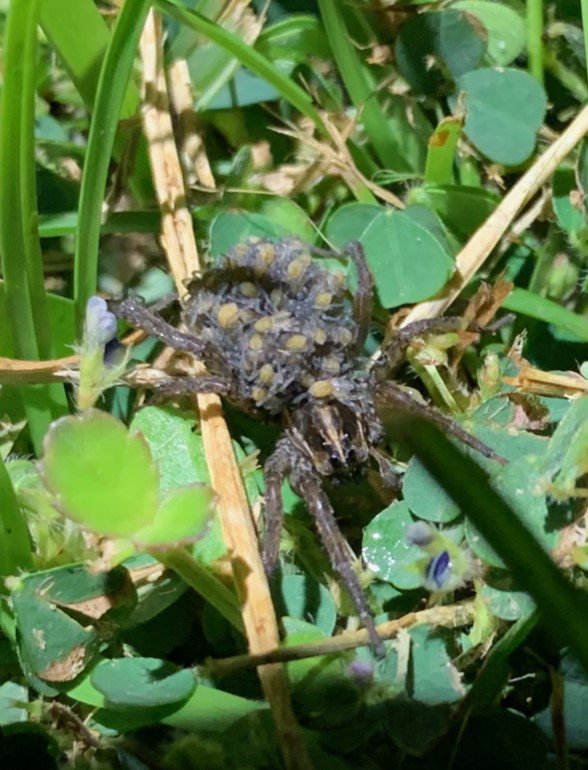How to Get Rid of Wolf Spiders
Published: November 6, 2023

Wolf spiders (h. carolinensis) also known as Carolina Wolf Spiders belong to the family Lycosidae, are mainly ground spider and can be a common nuisance in homes and gardens. There are over 2,300 species of wolf spiders in the world. These spiders are known for their large size and hairy appearance, which can be intimidating to some people. They feed on insect prey and have excellent night vision. Large females have a body length of 1 1/2” and the largest wolf spiders have legs 2-3” long. Which cause's many people to mistake them for tarantulas. They belong in the cephalothorax group, which means their head is fused to their body. They have spinnerets that produce silk, but they don't rely on them to catch prey
However, there's no need to panic! In this blog post, we will share some tips on how to effectively eliminate of wolf spiders.

1. Identify Problem Areas for Wolf Spiders
The first step in dealing with any pest issue is to identify the problem areas. Most wolf spiders are typically found in dark and damp areas such as basements, crawl spaces, and garages. They also tend to hide in cluttered areas or under piles of debris. By identifying these problem areas, you can focus your efforts on eliminating the spiders from these specific locations.
2. Remove Clutter and Debris
As mentioned earlier, they love cluttered areas. By decluttering your home or garden, you are removing potential hiding spots for these pests. Take the time to organize your belongings and dispose of any unnecessary items that may be attracting the spiders.
3. Seal Entry Points
Prevention is key when it comes to pest control. Take a proactive approach by sealing any entry points that may allow wolf spiders to enter your home or garden. This includes cracks in walls, gaps around windows and doors, and spaces under doors. Use caulk or weatherstripping to seal these openings effectively.
4. Keep Your Home Clean
Maintaining a clean living environment is essential for keeping wolf spiders at bay. Regularly vacuuming floors, sweeping up debris, and wiping down surfaces will help eliminate potential food sources for these pests.
5. Use Natural Repellents
If you prefer natural methods of pest control, there are several options available that can help repel them. Peppermint oil is known for its ability to deter spiders due to its strong scent. Simply mix a few drops of peppermint oil with water and spray it in areas where spiders are likely to hide.
6. Utilize Chemical Treatments for Wolf Spiders
In severe cases, chemical treatments may be necessary to eliminate wolf spiders. It is important to choose a pesticide that is specifically formulated for spider control and follow the instructions carefully. If you are unsure about using chemical treatments, it's best to consult with a professional pest control company.
Conclusion
Dealing with them can be a daunting task, but by following these tips, you can effectively get rid of them from your home or garden. Remember to identify problem areas, remove clutter and debris, seal entry points, keep your home clean, use natural repellents, and consider chemical treatments if needed. If you're still struggling with wolf spider infestation, don't hesitate to reach out to a professional pest control service for assistance.
With these effective strategies in place, you'll be able to enjoy a spider-free environment in no time!